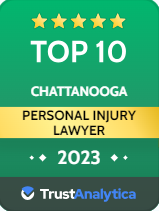Many of our clients want to know how they can maximize their compensation. It’s a simple question to answer but it can be tricky to put it into practice. This article will explain some tips on how you can make sure you’re getting the amount you deserve from your personal injury case.
Hire a Personal Injury Lawyer
First and foremost, you’ll need an injury lawyer to help you with your case. While many people worry about the costs of a lawyer, the truth is that many insurance companies don’t pay out what you’re really owed unless you have legal backup.
The extra money that you get from having a legal advocate on your side can more than make up for the money you’ll have to pay for the service. In addition, most accident lawyers work on a contingent-fee basis. This means that you only pay if they win your case.
Follow the Rules
Next, you need to ensure that you are following the law. Anything that you do that breaks any laws will jeopardize your claim. For instance, failing to trade information with the other driver after an accident could be used against you. You might also have a limited amount of time to file a lawsuit. A lawyer can help you avoid these problems.
A trickier area is following the rules of your insurance company. Complying with your policy’s rules is usually a good thing, but many insurance companies will use tricks to try and get you to settle before a lawyer can look at your case more thoroughly. Your lawyer can interact with your insurance company on your behalf and give you instructions and advice so you can get the amount of money you truly deserve.
Document Everything Related to the Accident
Lawsuits all come down to evidence, which is why documentation is crucial for maximizing your compensation. The more information you can give to your lawyer, the better your case will be. Here are some things you can do:
At the scene:
- Take photos of all damage on both vehicles and the general scene. Your smartphone camera will suffice.
- Note the number of people in the other vehicle, as well as the vehicle tag number.
- Get the name, contact information, and insurance information of the other driver as required by law.
- Take photos of your injuries, if possible.
- File a police report. Be honest about your current condition.
- If your injuries are severe and you can’t get this information until after you’re in the hospital, contact the police to get a copy of their report.
Maintain an Injury journal:
- As soon as you are able, start keeping a journal of your injury progress. Note down the day and time of your entries and record things like what you did for your case (e.g., call a lawyer), any doctor visits and insurance company interactions, etc.
- Also record your subjective feelings of pain and mental distress. Are things getting better or worse?
- Also record your physical and mental struggles at work and home. If you wish to prove a pain and suffering claim, this information is invaluable.
Hold on to All Paperwork:
- Any receipts, bills, or other financial-related information from repair shops and medical professionals.
- Any communications at all from your insurance company.
- Anything from your employer about accommodations they have to make for you to continue work.
- Medical records.
- Anything else your lawyer recommends you retain as possible evidence for your case.
Collecting all this information may seem like an extra burden on top of the pain you’re feeling, but this documentation is the way to prove that your injuries are as bad as you say they are. The more evidence the court has, the greater the chances for higher compensation.
If you have more questions regarding what to do after an accident, contact Dennis & King today for a free consultation.
 500+ five star reviews
500+ five star reviews








